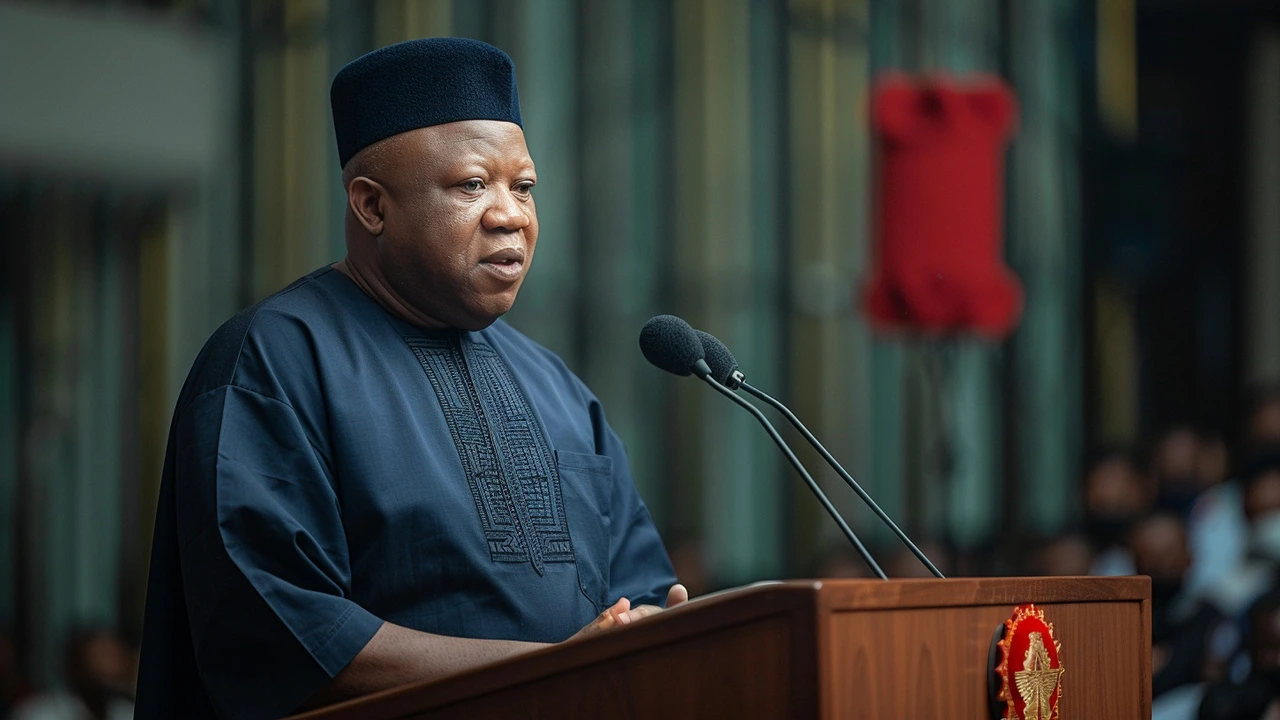Nigerian Workers Urged to Maintain Productivity and Resolve Amid Economic Challenges on Workers Day
 May, 1 2024
May, 1 2024
Introduction
Workers Day in Nigeria, an emblematic celebration of labor and dedication, saw a convergence of calls from political leaders across the country urging laborers to maintain their dedication despite economic hurdles. This rallying cry was echoed by several state governors and high-ranking officials who not only applauded the resilience of the workforce but also reassured their commitment to improving living and working conditions.
Commitments From National and State Leaders
Senate President Godswill Akpabio, representing the federal government's stance, assured the workers of a consistent parliamentary backing aimed at bettering their working conditions. 'Our focus is to ensure a robust framework that supports a living wage and ensures that the rights and welfare of every Nigerian worker are upheld,' remarked Akpabio during his address at a gathering organized to commemorate this significant day.
State leaders were not left behind in the chorus for improvement and appreciation. In Ebonyi State, Governor Nwifuru emphasized the need for workers to reciprocate the government's endeavors to uplift their welfare with increased productivity. 'Each stride we take towards enhancing your work conditions should be met with a renewal of your commitment to your duties,' he urged.
Edo State shared its success stories with Governor Godwin Obaseki outlining the impactful contributions of workers to the state's economic upturn. Obaseki praised the workers' indomitable spirit which has seen the state rising against various economic challenges achieving noteworthy milestones in development. Similarly, in Katsina State, Governor Dikko Radda assured the workforce of improved focus on their welfare and security, critical components that contribute to a prosperous working environment.
Updates on Minimum Wage and Salaries
In an uplifting announcement for many, Cross River State stepped forward with a groundbreaking declaration of a new minimum wage set at N40,000, surpassing the current national benchmark. Governor Otu's declaration was received with appreciation and is seen as a strong move towards alleviating the cost-of-living crisis facing many workers in the state. This is in line with similar affirmations from Zamfara State where Governor Lawal revealed plans for an increment in worker's salaries, alongside a general improvement in worker welfare schemes.
No less committed, Rivers State Governor Fubara has promised the implementation of an approved salary increase, ensuring the state aligns with national objectives towards elevating workers' standards of living. These financial adjustments across various states underscore a nationwide commitment to not just celebrate but significantly uplift the welfare of workers.
Challenges and the Path Forward
Despite these promises and moments of optimism, Nigerian workers continue to face substantial economic and social challenges. Rising inflation rates, inconsistent employment opportunities, and the volatile global economic landscape are stark realities that workers grapple with. As state governments roll out policies aimed at alleviating these burdens, the effectiveness and speed at which these are implemented remain critical to actual improvements in workers' lives.
The observance of Workers Day is thus transformed from a mere ceremonial acknowledgment into a crucial moment for renewing commitments by both the government and the workforce. It’s a day to reflect on the advancements made in the labor sector, while also addressing the persistent issues that hamper the realization of full workers' rights and potentials.
Conclusion
As Nigeria charts a path towards economic recovery and greater workforce empowerment, the dialogue between the government and workers becomes increasingly vital. The acknowledgments and promises made during this year’s Workers Day celebration not only highlight current successes but also pave the way for addressing the ongoing and emerging challenges. With continued collaboration and steadfastness, the vision for a thriving, well-compensated Nigerian workforce is within reach.